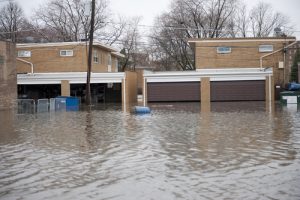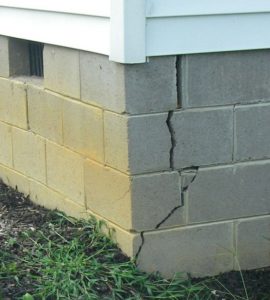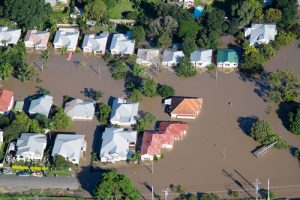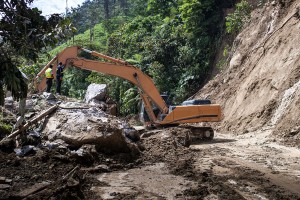 In 2011, the California Insurance Commissioner promulgated a regulation governing replacement cost estimates for homeowners insurance (Cal. Code Regs., tit. 10, §2695.183 [the Regulation]). After the trial court and intermediate court of appeal invalidated the Regulation,[1] this week the California Supreme Court reversed those decisions in a published decision, Association of California Insurance Companies v. Jones (Cal. Jan. 23, 2017) Case No. S226529.
In 2011, the California Insurance Commissioner promulgated a regulation governing replacement cost estimates for homeowners insurance (Cal. Code Regs., tit. 10, §2695.183 [the Regulation]). After the trial court and intermediate court of appeal invalidated the Regulation,[1] this week the California Supreme Court reversed those decisions in a published decision, Association of California Insurance Companies v. Jones (Cal. Jan. 23, 2017) Case No. S226529.
The Regulation was originally enacted in response to complaints from numerous homeowners who found that they were underinsured only after disaster completely destroyed their homes. In investigating these complaints, the Department of Insurance had found that the replacement cost coverage limit recommended by a number of insurers for their policyholders had understated what was actually necessary to rebuild the insured’s home over 80 percent of the time, and that many of the replacement cost estimates by insurers failed to consider costs of replacing the foundation, debris/demolition expenses, overhead and profit, and engineering reports and architectural plans.
The Regulation does not require an insurer to recommend a particular policy limit or provide a replacement cost estimate when it was issuing or renewing a policy, but if the insurer does choose to opine on replacement costs, the Regulation specifies how that estimate is to be calculated and what factors it must include. Under the Regulation, the estimate must account for “the expenses that would reasonably be incurred to rebuild the insured structure(s) in its entirety,” including the cost of labor, building materials and supplies, overhead and profit, demolition and debris removal, and the cost of permits and architect’s plans. The estimate also must take into account “components and features of the insured structure,” including enumerated items such as the type of foundation and framing. Further, at least annually, the Regulation requires the insurer to “take reasonable steps” to verify that estimate methods are updated to reflect relevant changes. Read more ›

 The preemptive effect of the National Flood Insurance Program (NFIP) on overlapping claims asserted by policyholders based on federal and state common law theories of liability is well established. “Numerous courts have held that claims other than those expressly authorized by the [National Flood Insurance Act (NFIA)] are preempted.”
The preemptive effect of the National Flood Insurance Program (NFIP) on overlapping claims asserted by policyholders based on federal and state common law theories of liability is well established. “Numerous courts have held that claims other than those expressly authorized by the [National Flood Insurance Act (NFIA)] are preempted.”  Does the efficient proximate cause rule serve to afford coverage for the additional costs to rebuild the foundation of a home in compliance with changed building code requirements beyond the sublimit of liability of an optional building ordinance or law endorsement? In an opinion ordered published on December 21, 2016, the Washington Court of Appeals said no, denying a homeowner the full cost of a new foundation as part of the repair of fire damage.
Does the efficient proximate cause rule serve to afford coverage for the additional costs to rebuild the foundation of a home in compliance with changed building code requirements beyond the sublimit of liability of an optional building ordinance or law endorsement? In an opinion ordered published on December 21, 2016, the Washington Court of Appeals said no, denying a homeowner the full cost of a new foundation as part of the repair of fire damage.  It is well-established that claim processing and wrongful denial of coverage disputes involving federal flood insurance policies belong in federal court because they present substantial questions of federal law. The U.S. District Court for the Western District of North Carolina recently applied this rule when it denied the insureds’ motion to remand a case to state court in
It is well-established that claim processing and wrongful denial of coverage disputes involving federal flood insurance policies belong in federal court because they present substantial questions of federal law. The U.S. District Court for the Western District of North Carolina recently applied this rule when it denied the insureds’ motion to remand a case to state court in  Principle Solutions Group, LLC, an information technology company, lost $1.717 million when it became the victim of a fraud scheme for which it sought coverage under the terms of a commercial crime policy issued by Ironshore Indemnity, Inc. The policy provided coverage for “Computer and Funds Transfer Fraud,” “resulting directly from a fraudulent instruction directing a financial institution to debit your transfer account and transfer or, pay or deliver money or securities from that account.” At issue was the meaning of the word “directly,” as it pertained to the pending claim.
Principle Solutions Group, LLC, an information technology company, lost $1.717 million when it became the victim of a fraud scheme for which it sought coverage under the terms of a commercial crime policy issued by Ironshore Indemnity, Inc. The policy provided coverage for “Computer and Funds Transfer Fraud,” “resulting directly from a fraudulent instruction directing a financial institution to debit your transfer account and transfer or, pay or deliver money or securities from that account.” At issue was the meaning of the word “directly,” as it pertained to the pending claim.




